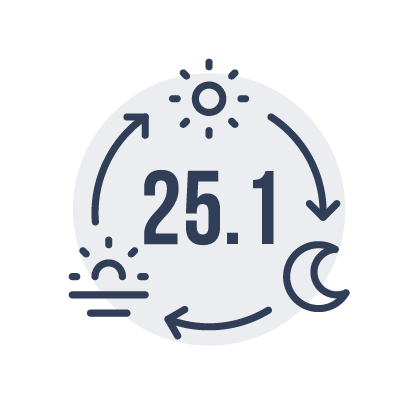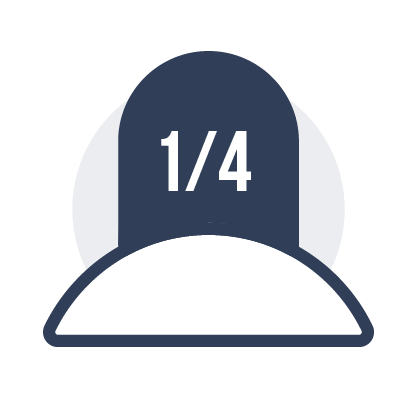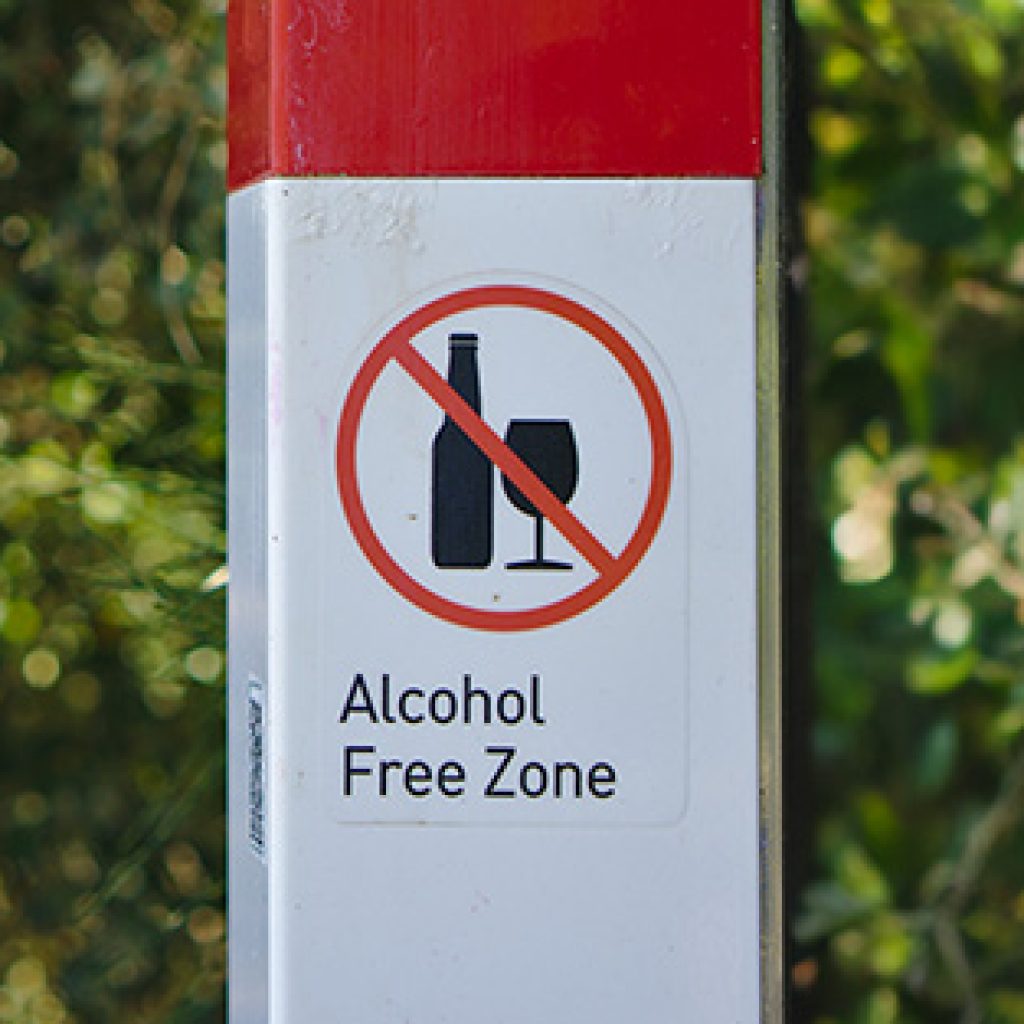Older Adults & Suicide: The Latest Stats & Resources in Nevada
The U.S. Census Bureau indicates that by 2030, there will be nearly 75 million Americans over age 65. A 2012 study from the Institute of Medicine found that nearly 1 in 5 older Americans has one or more mental health/substance use conditions. According to 2018 data from the Center for Disease Control and Prevention, adults in the 75-84 and 85+ age groups are among those with the highest rates of suicide.” Some of the top reasons older adults are vulnerable to suicide is from grief over the passing of loved one and chronic illness.
National Suicide Data
According to the American Association of Suicidology, the most recent data from 2019, and the National Council on Aging:
 9,173 older adults completed suicide.
9,173 older adults completed suicide.
 Men 65+ face the highest overall suicide rate.
Men 65+ face the highest overall suicide rate.
 On average 25.1 older adult dies by suicide each day.
On average 25.1 older adult dies by suicide each day.
 While older adults comprise just 12% of the population, they make up approximately 18% of suicides.
While older adults comprise just 12% of the population, they make up approximately 18% of suicides.
 Among those who attempt suicide 1 in 4 older adults will complete suicide, compared to 1 in 200 youth. Older adults tend to plan suicide more carefully and tend to use more lethal methods.
Among those who attempt suicide 1 in 4 older adults will complete suicide, compared to 1 in 200 youth. Older adults tend to plan suicide more carefully and tend to use more lethal methods.
 People 85+ have the highest rates of suicide.
People 85+ have the highest rates of suicide.
Nevada Suicide Data
According to Facts About Suicide Nevada has the following statistics:
Nevada Suicide Ranking
Nevada has the 9th highest rate of suicide in the United States, nearly double the national rate.
Cause of Death Ranking
Suicide is the 8th leading cause of death in the United States but is the 8th leading cause of death for Nevadans.
Suicide and 65+ Nevadans
Suicide is the 14th leading cause of death for Nevadans 65+.
Elder Suicide Rate
Nevada has the 2nd highest elder suicide rate in the country.
Suicide and Death Rankings
More people die from suicide than homicide and Motor Vehicle Accident Deaths combined in Nevada.
Across the U.S., the suicide rate increased 35% from 1999 to 2018. Increases occurred in every state except Nevada. The costs of suicide is estimated to be about $70 billion dollars, including lifetime medical fees and lost wages (CDC Wonder Database, accessed 2020; America’s Health Rankings, accessed 2020). The rates of suicide among older adults is a public health concern. Older adults die by suicide for three primary reasons: they plan more carefully than other age groups and use more deadly methods; they are not as likely to be found and rescued; and can be physically more frail and therefore less likely to recover from a suicide attempt (Suicide Prevention Resource Center, retrieved 2020).
Risk and Protective Factors
Older adults have several risk and protective factors for suicide. Some of the risk factors that are unique to older adults are related to reaching a stage of life where their physical life functions, social lives and roles in their families and the community are changing. They may be more isolated, less physically able, experience losses of loved ones and friends, and losses of mobility.
Some of the risk factors related to these changes are:
☑ Undiagnosed mental health conditions such as depression
☑ Physical Illness
☑ Perceived poor health
☑ Brain injuries or disorders
☑ Prolonged exposure to stress
☑ Chronic pain
☑ Life and role transitions
☑ Access to lethal means
☑ History of abuse or neglect
☑ A family history of suicide
☑ Previous suicide attempts
Some additional contributing factors to the high suicide rate in Nevada and among older adults in Nevada may be related to rural location, gun ownership, lack of social support, social isolation, alcohol and drug use, and the gaming lifestyle, particularly quick money losses and problem gambling (Lawrence & Pace, 2017).
What Nevada Is Doing
Nevada has been working to build a Comprehensive Suicide Prevention Program since at least 1999, when the Nevada Legislature acknowledged the issue of suicide in Nevada and made prevention and access to mental health services for at risk individuals a priority through Senate Concurrent Resolution SCR11. In March 2005, ongoing efforts of lawmakers and others in Nevada culminated in the establishment of the Nevada coalition for Suicide on March 1, 2005. The primary goal of the Nevada Coalition for Suicide Prevention is “to fully support the State Suicide Prevention Coordinator and to serve as a collaborative resource for statewide suicide prevention programs and services.”
Cherylyn Rahr-Wood is the Zero Suicide Project Coordinator for the Office of Suicide Prevention (OSP) and the Center for the Application of Substance Abuse Technologies (CASAT). During an interview with CASAT OnDemand staff, Ms. Rahr-Wood described the Zero Suicide (ZS) framework as “a system-wide, organizational commitment to safer suicide care in health and behavioral health care systems. The framework is based on the realization that people who have suicidal thoughts often fall through the cracks in a sometimes fragmented and distracted health care system. A systematic approach to quality improvement in these settings is both available and necessary. The ZERO Suicide website explains the tool kit to implement Zero Suicide into your health system. The ZS initiative is a continuous aspirational quality improvement framework for transforming suicide prevention in health and behavioral health care systems.”
Ms. Rahr-Wood highlighted another important resource in Nevada, Nevada’s Intervention Connection, an online training portal for all caregivers, whether trained professional or through their own life experiences. She explained that “This site helps people stay current and enhance your skills to be more capable, confident, and comfortable in Mental Health First Aid and suicide prevention. The NV Intervention Connection (NIC) is brought to the publicc through a partnership between the Nevada State Office of Suicide Prevention, Nevada Department of Education, Nevada Coalition for Suicide Prevention, and community coalitions across the state.”
Nevada 211 is a program of the Nevada Department of Health and Human Services. Nevada 211 is committed to helping Nevadans connect with the services they need. This program connects older adults to a multitude of resources including food, transportation, housing & shelter, rental assistance, mental health resources, adult protective services, licensed health facilities, addiction services, and more. In addition, the Nevada Care Connection Resource Center staff help connect older adults, and their caregivers with resources to meet their own individual needs by providing personalized assistance.
How Behavioral Health Providers, Friends And Families Can Help Prevention Suicide In Older Adults
So how can we all -behavioral health providers, friends, and families – help in Nevada’s suicide prevention efforts for older adults? Misty Vaughan Allen of the Nevada Office of Suicide Prevention suggests
I feel behavioral health providers can help reduce stigma by educating their clients that depression is not a typical part of aging and help is available. Just letting someone struggling with depression or anxiety know that there are options to help that might make a huge difference. It could be lifestyle changes, counseling, medications or connections to support, possibly all of the above.”
This can also mean reaching out to families, friends and others. Ms. Vaughan Allen state that “If a provider has the opportunity to communicate with family or other members of the support system, the provider could offer ideas for support, tools to check in and resources if a crisis arises. Communicating that the family isn’t alone in keeping their loved one safe can help that support system feel more empowered to build that safety around their loved one.” While often providers and family members think of “reaching out” says Cherylyn Rahr-Wood, get into the habit of thinking of it as “reaching in.” This can include setting up support systems ahead of time so that they are already in place when a crisis occurs. Providers – and family- can help set up such a support system during opportune times such as when setting up a Do Not Resuscitate (DNR) directive or living will. Ms. Vaughan Allen suggests that this opportunity might be enhanced by a “psychiatric advance directive,” encouraging older adults to write down information that will help providers to tap into their support system when needed. If an older adult can think “If I have a mental or behavioral health crisis and am not able to communicate, this is who my support system is…” and provide that information as part of a safety discussion, then the support system can be in place during at-risk times for suicide such as immediately after release from an emergency room, shelter, or other facility.
Some additional suggestions from the Suicide Prevention Resource Center for those who are supporting or providing services for elders or older adults include:
☑ Identify and Assist Persons at Risk– Learn the warning signs for depression and suicide and understand that it is important to “reach in” as Ms. Rahr-Wood suggests, because many older adults don’t seek help or support when it is needed.
☑ Increase Help-Seeking– Teach people to recognize when they need support and help them to find it.
☑ Ensure Access to Effective Mental Health and Suicide Care and Treatment– timely access to evidence-based treatment, suicide prevention interventions, and coordinated systems of care is imperative.
☑ Become Familiar with Available Programs– such as the Office of Suicide Prevention, Nevada 211, and the Sanford Center for Aging.
☑ Support Safe Care Transitions and Create Organizational Linkages– reduce suicide risk by facilitating uninterrupted transition of care and information exchange with both care and support systems.
☑ Respond Effectively to Individuals in Crisis– Become knowledgeable about the full continuum of care to address suicide at all levels of intervention.
☑ Provide for Immediate and Long-Term Postvention– Follow-up and support for both the long and short term are necessary, and that includes supports for people bereaved by suicide.
☑ Reduce Access to Means of Suicide– educating the families of those in crisis about safely storing medications and firearms, distributing gun safety locks, changing medication packaging, and installing barriers on bridges reduce access to lethal means and are an important part of suicide prevention.
☑ Enhance Life Skills and Resilience– help people to develop life skills, because critical thinking, stress management, and coping are some of the ways to prepare them for the challenges of life that positively impact suicide risk.
☑ Promote Social Connectedness and Support– enhance connectedness through social programs for older adults through other activities that reduce isolation, promote a sense of belonging, and foster emotionally supportive relationships.
In an interview with Dr. Steven Nicholas he shares how it’s important to help people find or remember what brings them meaning and purpose. This is particularly important when it comes to older adults and life transitions. In addition, reinforcing or helping older adults to find meaningful connections is another important aspect of suicide prevention. To sum it up in the words of Misty Vaughan Allen, “Suicide is often more about the challenges and stressors around living, not necessarily the desire to die. If we can help the person find out what is leading to their thoughts of suicide, we can help them get relief from that loss, pain, overwhelm or sense of burdensomeness. If we can intervene on that feeling of isolation or aloneness…that they are valued, we help plant a seed of hope and more of a willingness to keep safe.”
Suicide And Other Resources For Older Adults And Their Caregivers
Suicide Prevention Resource Center – Older Adults and Suicide
Suicide Prevention Resource Center – Behavioral Health Care
Centers for Disease Control and Prevention (CDC)
Nevada Coalition for Suicide Prevention
The National Suicide Prevention Lifeline and Nevada
Department of Health & Human Services Aging and Disability Services Division Programs for Seniors
Suicide Prevention Resource Center – Nevada Site
Nevada’s Division of Public and Behavioral Health Office of Suicide Prevention
Nevada Division of Public and Behavioral Health (DPBH) Office of Suicide Prevention – Reports/Fact Sheets
Crisis Support Services of Nevada
This article was developed originally by Stephanie Asteriadis Pyle, PhD and was revised and updated by Heather Haslem, M.S. at CASAT. Feel free to use, link to, or distribute this information. A link to our site and attribution would be much appreciated.
Blog Post Tags:
Related Blog Posts
Related Learning Labs
Related Resources
.
- Buscar Tratamiento de Calidad para Trastornos de uso de Sustancia (Finding Quality Treatment for Substance Use Disorders Spanish Version)
- Finding Quality Treatment for Substance Use Disorders
- Focus On Prevention: Strategies and Programs to Prevent Substance Use
- Monthly Variation in Substance Use Initiation Among Full-Time College Students
- The National Survey on Drug Use and Health (NSDUH) Report: Monthly Variation in Substance Use Initiation Among Adolescents








